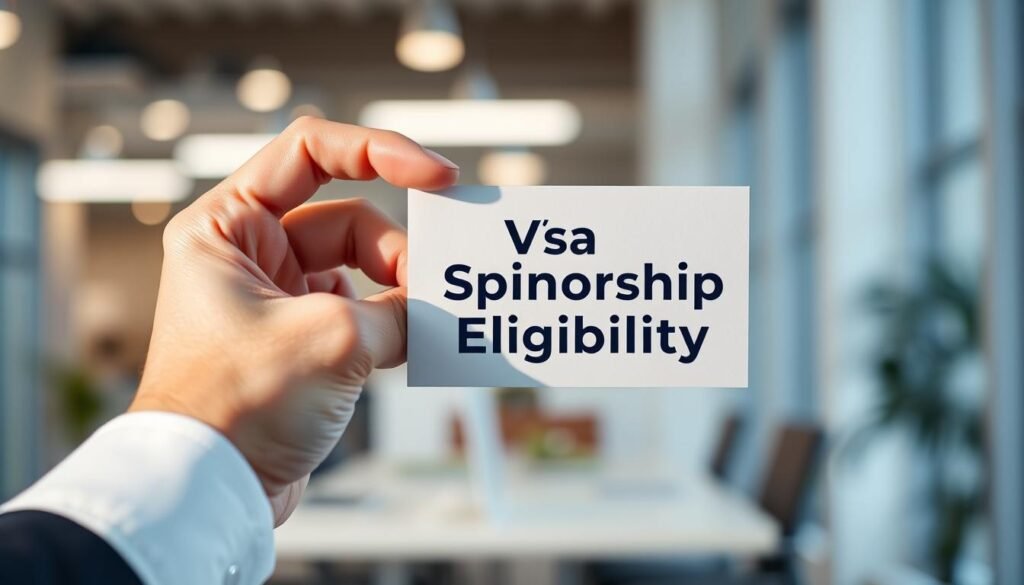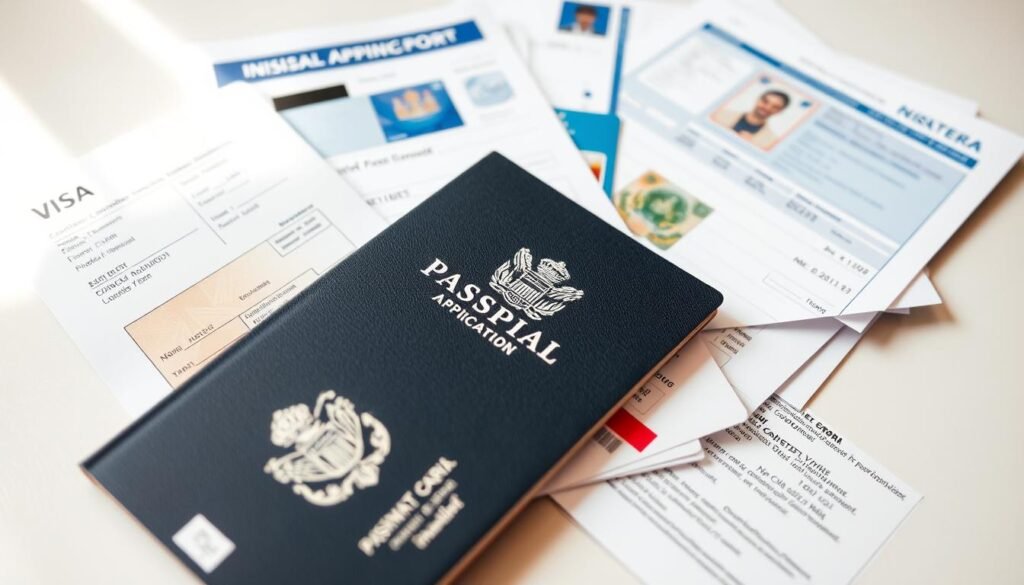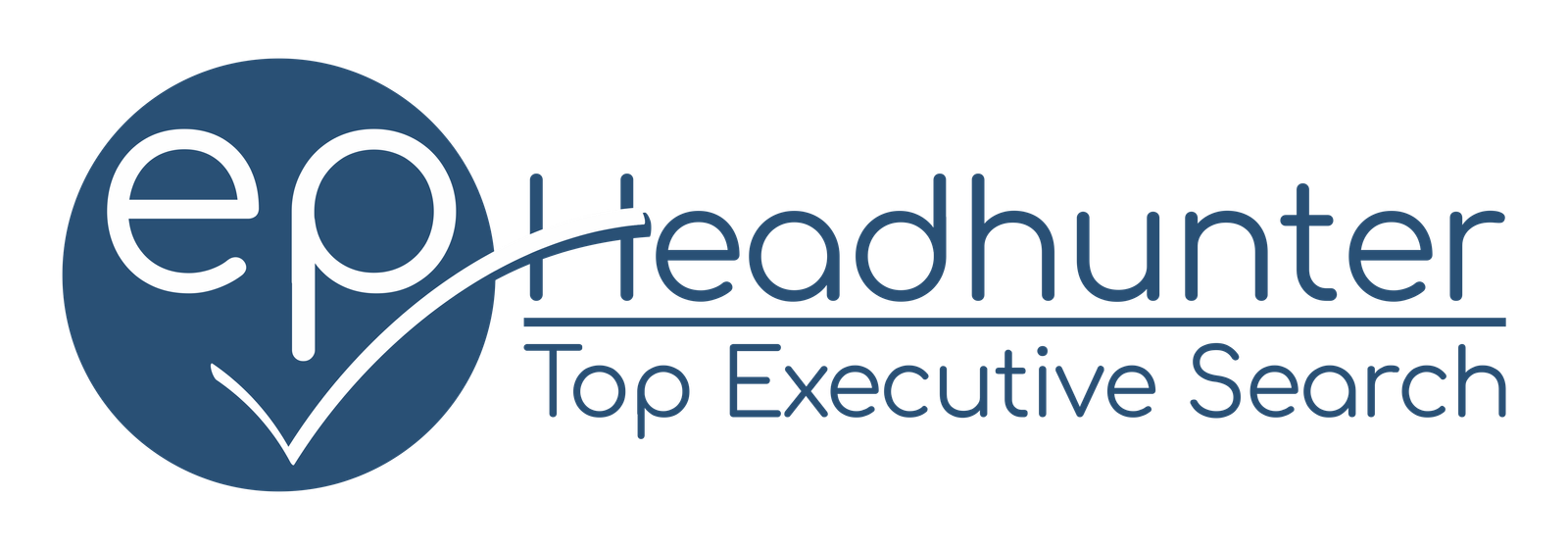Have you ever wondered what it takes to secure a work visa with employer support? Navigating the immigration process can seem daunting, but understanding the basics can make it much simpler. A work visa allows professionals to legally work in another country, often requiring a job offer and employer sponsorship.
Employers play a critical role in this process. They must meet specific requirements, such as providing proper documentation and complying with immigration laws. For example, programs like the H-1B visa in the United States or the Tier 2 visa in the UK involve detailed steps and employer responsibilities.
Proper preparation is key. From understanding the application process to ensuring all fees are covered, both employers and employees must work together. This guide will walk you through the essentials, offering practical advice for a smooth experience.
Key Takeaways
- Employer sponsorship is often required for work visa applications.
- Proper documentation and compliance with immigration laws are essential.
- Programs like H-1B and Tier 2 visas have specific employer responsibilities.
- Understanding the process can save time and reduce stress.
- Both employers and employees must collaborate for success.
Understanding Work Visa Sponsorship in Colombia
Navigating the complexities of work visa sponsorship can be a game-changer for professionals eyeing Colombia. This process involves collaboration between employers and employees to ensure compliance with immigration laws and local regulations.

Defining Employer Sponsorship
Employer sponsorship is a critical step in the visa application process. It requires the employer to gather necessary documents, file appropriate forms, and ensure compliance with labor and immigration laws. This includes verifying the employee’s qualifications and justifying the need for hiring a foreign professional.
For example, in Colombia, employers must provide proof of job offers and demonstrate that no suitable local candidate is available. This ensures that the visa application aligns with the country’s labor market needs.
Why Colombia is an Attractive Destination
Colombia’s growing economy and favorable business environment make it a hotspot for global talent. The country offers a range of visa options, including the Migrant Visa (M visa) and Resident Visa (RE visa), catering to different employment needs.
Multinational companies have successfully expanded into Colombia, leveraging its skilled workforce and strategic location. The country’s visa policies are designed to attract professionals, offering benefits like extended stays and streamlined processing times.
“Colombia’s visa system is a gateway for professionals seeking new opportunities in a dynamic and growing economy.”
- Employers must comply with immigration and labor laws.
- Colombia’s visa options cater to diverse professional needs.
- The country’s economy attracts multinational companies and skilled workers.
How to Get Employer Sponsorship for a Work Visa
Securing a work visa with employer support involves a structured process that demands attention to detail. Both employers and employees must work together to ensure compliance with immigration laws and meet all requirements. This section provides a clear roadmap to navigate the process effectively. Employers must first demonstrate a genuine need for the position, justifying the hiring of a foreign worker over local candidates. Employees should gather necessary documentation, including proof of qualifications and a valid job offer. Understanding how to apply for executive work visa is crucial, as it often requires specific forms and adherence to regulatory guidelines to facilitate a smooth transition.

A Step-by-Step Overview
The visa sponsorship process begins with a formal job offer. Employers must verify the employee’s qualifications and justify the need for hiring a foreign professional. This often involves demonstrating that no suitable local candidate is available.
Next, employers complete labor certifications and file the appropriate forms. Accurate documentation is critical to avoid delays. Tracking visa expiration dates is also essential to ensure timely renewals.
Finally, the application undergoes processing by immigration authorities. Employers must stay informed about the status and address any additional requests promptly.
Common Challenges and Solutions
Delays in document processing are a frequent issue. Employers can mitigate this by submitting complete and accurate paperwork from the start. Using technology to track deadlines and maintain oversight can also help.
Compliance with changing immigration requirements is another challenge. Regular updates and consultations with legal experts ensure adherence to current laws. As Mamatha Chintha from Safeguard Global advises, “A systematic approach minimizes errors and streamlines the process.”
Employers should also prepare for potential costs, such as application fees and legal expenses. Budgeting for these in advance prevents financial surprises.
“A well-organized process ensures that all steps, from initial application to final visa issuance, are completed accurately and efficiently.”
- Start with a formal job offer and verify employee qualifications.
- Complete labor certifications and file required forms accurately.
- Track visa expiration dates and plan for renewals.
- Use technology to manage deadlines and maintain compliance.
- Consult legal experts to navigate changing immigration laws.
Evaluating Eligibility and Employer Requirements
Understanding the eligibility criteria for both employers and employees is a crucial step in the visa sponsorship process. Both parties must meet specific standards to ensure compliance with immigration and labor laws. This section outlines the key factors employers and employees need to consider.

Employer Criteria We Look For
Employers play a pivotal role in the visa sponsorship process. They must demonstrate their ability to meet legal and financial obligations. This includes providing proof of a legitimate job offer and ensuring the position cannot be filled by a local candidate.
Key criteria for employers include:
- Proven financial stability to support the employee.
- Compliance with local and international labor laws.
- Documentation verifying the job offer and business legitimacy.
For example, in Colombia, employers must submit detailed documentation, including company registration and tax records. This ensures transparency and adherence to immigration policies.
Employee Qualifications and Skill Gaps
Employees must meet specific qualifications to be eligible for visa sponsorship. Employers often look for specialized skills and industry experience that align with the job requirements. This helps bridge skill gaps in the local labor market.
Common qualifications include:
- Relevant educational background and certifications.
- Proven work experience in the industry.
- Language proficiency, especially in Spanish for Colombia.
Employers typically verify these qualifications through detailed background checks and reference reviews. This ensures the candidate is a good fit for the role and the organization.
| Criteria | Employer Requirements | Employee Qualifications |
|---|---|---|
| Financial Stability | Proof of ability to pay the employee | N/A |
| Compliance | Adherence to immigration and labor laws | N/A |
| Skills | N/A | Specialized skills and experience |
| Documentation | Company registration, tax records | Educational certificates, work references |
By meeting these criteria, both employers and employees can navigate the visa sponsorship process more effectively. “A thorough evaluation ensures compliance and reduces the risk of delays,” notes an immigration expert.
Gathering Essential Documentation for Your Application
Proper documentation is the backbone of any successful visa application. Missing or incomplete paperwork can lead to delays or even rejection. To ensure a smooth process, it’s crucial to gather all required materials and verify their accuracy.

Checklist of Required Documents
Every visa application demands specific documents. These often include:
- Passport: Valid for at least six months beyond the intended stay.
- Job Offer Letter: A formal letter from the employer detailing the position and terms of employment.
- Civil Documents: Birth certificates, marriage certificates, or other personal records.
- Educational Certificates: Proof of qualifications relevant to the job.
- Proof of Financial Stability: Bank statements or employer guarantees.
Having these documents ready ensures compliance with immigration requirements and speeds up the process.
Ensuring Accurate Translations and Certifications
If documents are not in the official language of the destination country, certified translations are mandatory. For example, in Colombia, Spanish translations must be approved by a certified translator. This step is vital to avoid misunderstandings or delays.
Additionally, some documents may require notarization or apostille certification. These processes verify the authenticity of the paperwork, making them acceptable to immigration authorities.
“Accurate translations and certifications are non-negotiable in visa applications. They ensure clarity and compliance with local laws.”
By preparing thoroughly and verifying all details, applicants can navigate the visa process with confidence. Proper documentation is not just a requirement—it’s a pathway to success.
Navigating the Detailed Visa Application Process
The visa application process requires precision and attention to detail to ensure success. From filing the correct forms to obtaining government approvals, each step must be carefully executed. This section provides a comprehensive guide to help you navigate the process efficiently.
Filing the Correct Forms
Accurate form submission is the foundation of a successful application. Forms like the I-129 and I-140 in the United States are critical for employer-sponsored visas. Ensure all fields are completed without omissions to avoid delays.
Employers must verify employee qualifications and provide supporting documents. This includes job offer letters, proof of financial stability, and company registration details. “Submitting complete and accurate forms is the first step toward approval,” notes an immigration expert.
Understanding Labor Certifications and Government Approvals
Labor certifications are often required to demonstrate that no local candidate is available for the position. This step ensures compliance with immigration and labor laws. Employers must submit detailed documentation, including job descriptions and recruitment efforts.
Government approvals can take time, so it’s essential to plan ahead. Tracking deadlines and maintaining open communication with immigration authorities can help streamline the process.
Timeline, Deadlines, and Application Tips
Adhering to timelines is crucial for a smooth application process. Below is a breakdown of key steps and deadlines:
| Step | Description | Deadline |
|---|---|---|
| Form Submission | Complete and file required forms | Within 30 days of job offer |
| Labor Certification | Submit proof of recruitment efforts | Before filing the visa application |
| Government Approval | Await processing by immigration authorities | Varies by country |
Practical tips include using technology to track deadlines and consulting legal experts for guidance. “Staying organized and proactive ensures compliance and reduces delays,” advises an immigration attorney.
By following these steps and maintaining attention to detail, employers and applicants can navigate the visa application process with confidence. Proper preparation and adherence to deadlines are key to success.
Understanding Costs, Fees, and Financial Considerations
Understanding the financial aspects of visa sponsorship is essential for both employers and employees. Proper budgeting and planning can prevent unexpected expenses and ensure a smooth process. This section provides a detailed breakdown of costs and practical strategies for managing fees.
Breakdown of Sponsorship-Related Expenses
Sponsoring a visa involves several costs, including petition fees, processing fees, and additional charges. For example, the H-1B visa petition fee ranges from $730 to $1,385. Companies with more than 50 employees may also need to pay a Public Law 114-113 fee of $4,500.
Other expenses include the ACWIA fee, which ranges from $750 to $1,500, depending on company size. Employers should also budget for legal fees, which can range from $1,500 to $4,500 or more. “Accurate cost estimation is crucial to avoid financial surprises,” notes an immigration expert.
Managing Visa Application Fees and Miscellaneous Charges
Application fees vary depending on the visa category. For instance, the consular processing fee for the DS-160 form is $205, typically paid by the employee. Premium processing, which expedites the application, costs $2,805 for most nonimmigrant visas.
Employers should also consider costs for document translations, notarizations, and apostille certifications. These additional charges can add up, so it’s important to account for them in the budget. Proper planning ensures compliance and reduces delays.
- Petition fees range from $730 to $1,385 for H-1B visas.
- ACWIA fees vary based on company size, from $750 to $1,500.
- Premium processing costs $2,805 for expedited service.
- Legal fees can start at $1,500 and exceed $4,500.
- Additional charges include translations, notarizations, and apostilles.
By understanding these costs and planning accordingly, employers and employees can navigate the visa sponsorship process more effectively. Financial preparedness is key to a successful application.
Leveraging Professional Immigration and Legal Support
Navigating the intricacies of visa sponsorship often requires expert guidance to ensure compliance and efficiency. Professional support can streamline the process, mitigate risks, and enhance success rates. This section explores the benefits of collaborating with immigration attorneys and global employment organizations.
How We Work with Immigration Attorneys
Partnering with experienced immigration attorneys offers numerous advantages. These professionals understand the complexities of visa applications, ensuring all documentation is accurate and complete. They also stay updated on changing immigration laws, reducing the risk of non-compliance.
For example, attorneys can help employers navigate labor certifications and government approvals. They provide tailored advice, ensuring each step aligns with legal requirements. “Legal expertise minimizes errors and accelerates processing times,” notes an immigration case manager.
Partnering with Global Employment Organizations
Global employment organizations play a vital role in visa sponsorship. They offer end-to-end support, from document management to compliance tracking. These organizations ensure adherence to local and international regulations, simplifying the process for employers.
By leveraging their expertise, companies can focus on core business operations while meeting visa requirements. This collaboration enhances efficiency and reduces administrative burdens.
| Benefit | Immigration Attorneys | Global Employment Organizations |
|---|---|---|
| Compliance | Ensure adherence to immigration laws | Track changing regulations |
| Efficiency | Streamline application processes | Reduce administrative tasks |
| Expertise | Provide tailored legal advice | Offer end-to-end support |
| Risk Mitigation | Minimize errors and delays | Ensure compliance with local laws |
Professional support is a strategic investment in global hiring efforts. It ensures compliance, reduces risks, and enhances the overall success of visa sponsorship. “Expert guidance transforms complex processes into manageable steps,” emphasizes an immigration expert.
Tips for Crafting a Compelling Job Offer and Sponsor Relationship
Crafting a compelling job offer is essential for attracting top international talent. A well-structured proposal not only appeals to candidates but also strengthens the sponsor relationship. This section provides actionable advice to help employers create offers that stand out.
Building an Attractive Proposal for Employers
A strong job offer clearly outlines salary, benefits, and career growth opportunities. Transparency is key to building trust with potential hires. Employers should ensure the offer aligns with international employment standards and immigration laws.
Effective communication is crucial. Address candidate concerns upfront and highlight their strengths. For example, emphasize how their skills will contribute to the company’s success. This approach fosters confidence and encourages acceptance.
Here are some tips for crafting a compelling offer:
- Detail the Role: Clearly define the job title, responsibilities, and expectations.
- Highlight Benefits: Include health insurance, relocation assistance, and other perks.
- Align with Laws: Ensure the offer complies with local and international regulations.
Case studies show that well-crafted offers lead to smoother visa sponsorship processes. For instance, a multinational company in Colombia successfully attracted top talent by offering competitive packages and clear career paths.
“A transparent and thorough job offer builds trust and sets the foundation for a strong sponsor relationship.”
By following these guidelines, employers can create offers that attract and retain top talent. A well-crafted proposal is not just a document—it’s a strategic tool for success.
Staying Compliant with Immigration and Labor Laws
Maintaining compliance with immigration and labor laws is critical for employers sponsoring international talent. Once a visa is issued, ongoing legal obligations ensure that both employers and employees adhere to regulations. This section outlines key responsibilities and best practices for staying compliant.
Ongoing Legal Obligations for Employers
Employers must fulfill several responsibilities after a visa is granted. These include monitoring employee status, ensuring job roles align with visa conditions, and adhering to labor laws. Non-compliance can result in fines, penalties, or even the revocation of sponsorship privileges.
For example, in Colombia, employers must report any changes in employment status within 10 working days. This includes salary adjustments, job location changes, or terminations. “Timely reporting is essential to maintain compliance and avoid legal issues,” notes an immigration expert.
Guidance on Renewal and Reporting Changes
Visa renewals require careful planning to avoid lapses in legal status. Employers should track expiration dates and initiate renewal processes well in advance. This involves submitting updated documentation and ensuring all fees are paid.
Internal tracking systems can help manage deadlines and maintain oversight. These tools ensure that renewals are processed efficiently and compliance is maintained. Proactive management reduces risks and ensures smooth operations.
Key steps for staying compliant include:
- Monitor visa expiration dates and plan for renewals.
- Report changes in employment status promptly.
- Ensure job roles align with visa conditions.
- Stay updated on regulatory changes in immigration and labor laws.
“Compliance is not a one-time task but an ongoing commitment. Employers must remain vigilant to avoid legal pitfalls.”
By following these guidelines, employers can maintain compliance and foster a positive relationship with immigration authorities. Staying informed and proactive is the key to success.
Final Insights on Securing Your Work Visa Sponsorship
Successfully navigating the path to a sponsored visa requires careful planning and collaboration. Throughout this guide, we’ve outlined the essential steps, from understanding eligibility to gathering documentation and staying compliant with immigration laws. Proper preparation is the foundation of a smooth process.
Employers play a critical role in ensuring compliance and supporting employees. From verifying qualifications to managing costs, every detail matters. Professional guidance can simplify this journey, reducing risks and delays.
We encourage readers to leverage the insights shared here. Whether you’re an employer or an employee, staying informed and proactive is key. For personalized advice, consulting with immigration attorneys or global mobility experts is highly recommended.
By following these strategies, you can achieve a successful visa sponsorship experience. Your efforts today pave the way for future opportunities.
